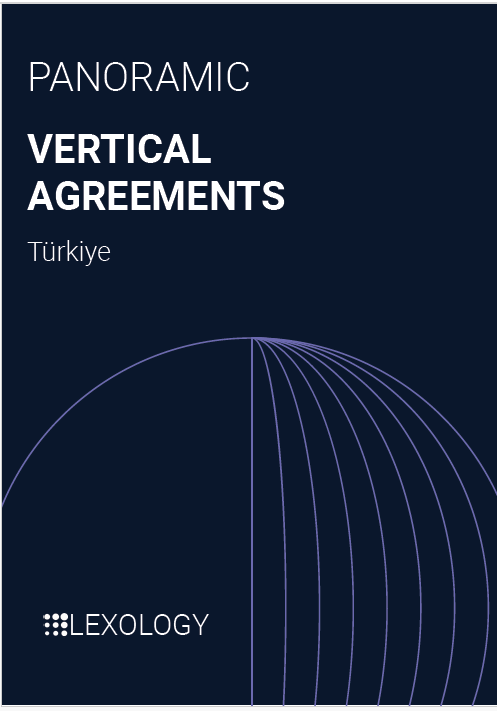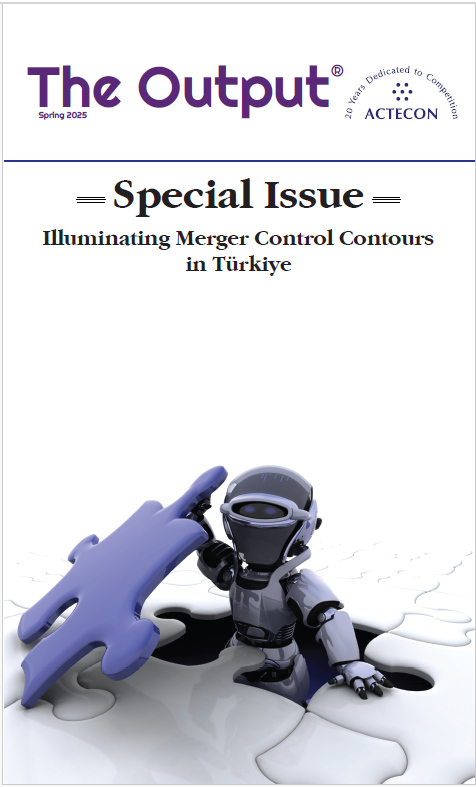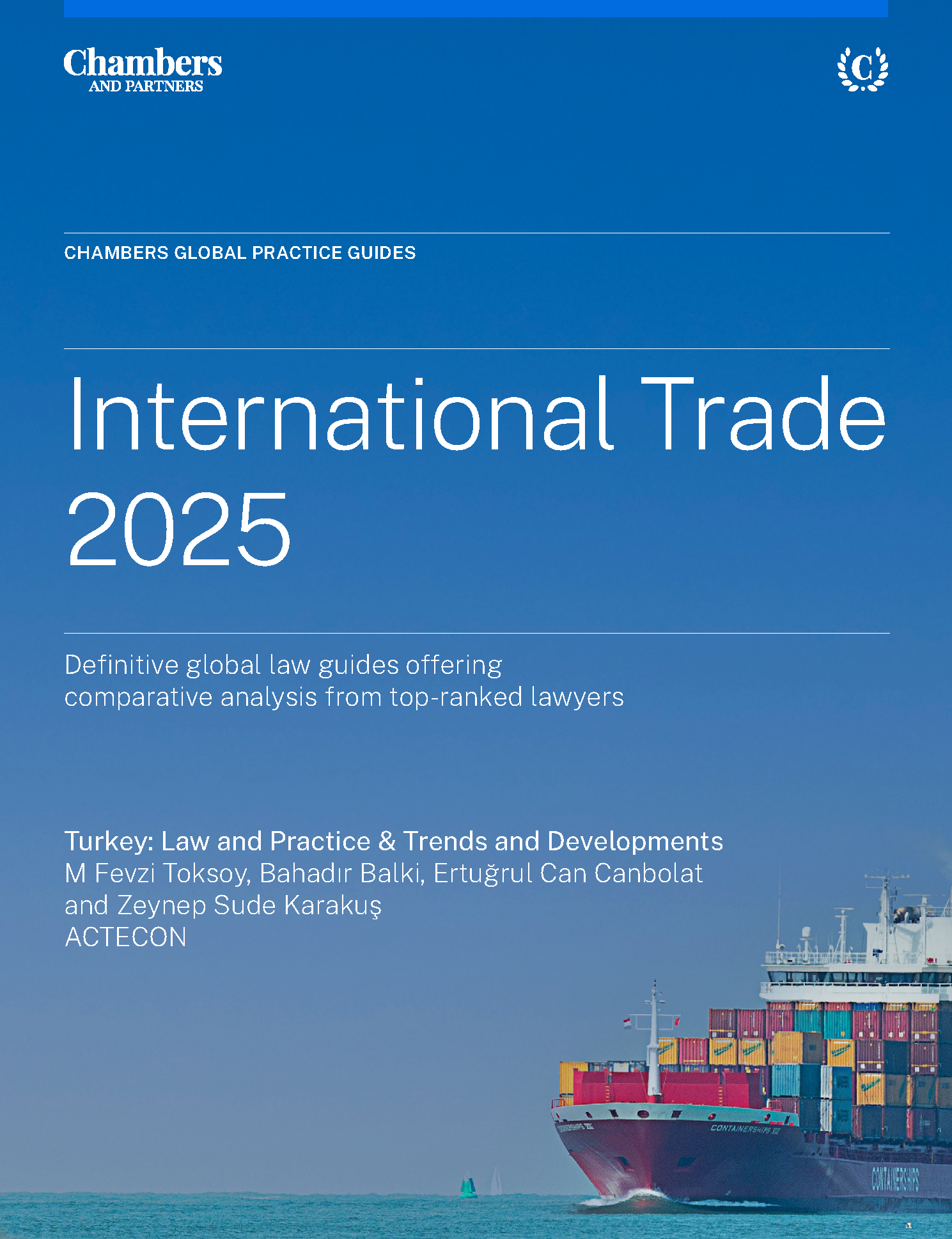Guards Up for Multinational Companies in Case of an On-The-Spot Inspection
| Competition Law

Guards Up for Multinational Companies in Case of An On-The-Spot Inspection
Article by Bahadır Balkı, Umay Rona
Abstract
On-the-spot inspections are one of the most powerful tools granted to competition authorities while conducting their investigations. Indeed, as in other jurisdictions, Article 15 of the Law No. 4054 on the Protection of Competition grants the Turkish Competition Authority the ability to examine and seize a copy of books, paper works, documents, or internal communications during an on-site inspection conducted at the premises of a company. The employees of the relevant company are obliged to provide copies of such documents as requested. If not, as seen in the past jurisprudence, the TCA is not reluctant to impose significant administrative monetary fines in cases of preventing or hindering on-the-spot inspections. This is due to the importance of findings obtained -or could not be obtained- during the on-the-spot inspections, as they may either lead to a substantial administrative monetary fine by confirming the allegations or to the acquittance of possible allegations. That said, the decisional practice of the TCA does not only demonstrate the requirement to examine and seize a copy of the requested documents but also to allow their review “on-time” in an uninterrupted way, even (and especially) for multinational companies. Therefore, in order for multinational firms to avoid being fined by the TCA while being in compliant with legal obligations stemming from other jurisdictions, they may stand their Turkey related data set and server ready for a possible on-the-site inspection of the TCA, at all times.
1. Introduction
One of the most significant stages of competition law related investigations for companies is the on-the-spot inspections conducted by the competition authorities. Indeed, as in many jurisdictions, under the Turkish competition law, on-the-spot inspections can only be carried out with a decision of the Turkish Competition Authority (“TCA”), without necessitating any court decision or prior notice. In fact, this authority constitutes the basis of possible -and also multiple- competition law violations due to the documents obtained-or could not be obtained- during the on-the-spot inspections, that may lead to a substantial administrative monetary fine imposed against companies. Therefore, due to the importance granted to the findings obtained during on-the-spot inspections in case these on-the-spot inspections are to be prevented or complicated, administrative monetary fines could be implemented to companies. Thereafter, in the 20-year-old decisional practice of the TCA, there have been number of decisions through which the TCA imposed considerable administrative monetary fines to companies for prevention or complication of on-the-spot inspections.
However, unlike others, the TCA’s recent Unilever[1], Siemens[2] and Groupe SEB[3] decisions, provide quite interesting insights with respect to global permission processes, access to global servers and technical measures taken to permit the TCA’s on-the-spot inspection. Indeed, these decisions portray and evaluate conflicts that may arise due to the broad investigatory powers of the TCA over corporations and the duty of multinational corporations to also comply with data protection regulations and especially with the General Data Protection Regulation (“GDPR”). Besides, as a result, the TCA imposed administrative monetary fines to all three corporations for hindering its on-the-spot inspections through delays, due to their internal global permission processes.
Therefore, the purpose of this article is to provide insight on the TCA’s approach towards multinational companies that have an internal/global permission mechanism in case of access to their server and to explain the consequences of not allowing the TCA’s access and review on time through the TCA’s recent Unilever, Siemens and Groupe SEB decisions. In light of the TCA’s recent decisional practice, it can be concluded that due to the possibility of removing or deleting documentations and/or internal communications that may constitute an important finding to the investigation at hand, the TCA does not await for any global or internal authorisation and considers any delay as hindering on-the-spot inspection.
2. Unilever Decision
As per the preliminary investigation initiated in order to determine whether Unilever Sanayi ve Ticaret Türk A.Ş. (“Unilever”) violated Articles 4 and 6 of the Law No. 4054 on the Protection of Competition (“Competition Law”) via blocking the sales of rival products in the final points of sale. During its preliminary investigation, the TCA conducted on-the-spot inspections in the Head Office and Ankara District Office of Unilever.
After explaining the on-the-spot inspection procedure to the Unilever employees, the case handlers indicated that inspections will be conducted as regards the e-mails of Unilever Turkey’s employees. However, it has been expressed by a Unilever official that they need to consult to Unilever Global for authorizing the inspection towards Microsoft’s Office 365 (e-mail service provider) accounts of the employees. It is stated by Unilever Global that:
- TCA’s inspection could be conducted through Office 365, via eDiscovery[4] tool,
- however, upon granting such inspection authorization to the case handlers, access will be provided for e-mails of all employees of Unilever in a global level rather than limited to e-mails of Unilever Turkey employees,
- the case handlers are not authorized for such inspection,
- decomposition for granting access limited to the e-mails of Unilever Turkey employees may take couple of days and
- it is mandatory to obtain high level of internal permission in order for the TCA to continue its eDiscovery inspection.
Further to the relevant explanation of Unilever Global, the permission required for the case handlers’ inspection through eDiscovery was obtained after approximately 7.5 hours of delay. In this regard, while referring to the Council of State’s decision[5], the TCA stressed that even a relatively short delay of 40 minutes constitute as hindering of on-the-spot inspection and that there is a possibility that the information and documents related to the case at hand to be deleted or destroyed. Consequently, the TCA concluded that the on-the-spot inspection had been hindered by Unilever via not permitting the inspection between the hours of 10:10 and 17:45 on the same day. Accordingly, the TCA imposed an administrative monetary fine of TRY 29.6 million (approximately EUR 3.9 million) to Unilever.
3. Siemens Decision
Although the administrative monetary fine imposed on behalf of Unilever seem to be severe, not all Turkish subsidiaries were able to obtain the permission from their global entity to allow the case handlers’ on-the-spot investigation “on-time”. In fact, in the Siemens decision, within the scope of the preliminary investigation carried out in accordance with the TCA’s decision, an on-the-spot inspection was intended to be performed at the premises of Siemens Healthcare Sağlık A.Ş. (“Siemens”) on 02.10.2019. In this regard, e-mail accounts of certain Siemens employees were inspected, and it was conveyed to Siemens IT officials that, TCA is intending to carry out an inspection within specific dates and keywords into the e-mail accounts of all of Siemens employees. When discussing with the IT officials how to carry out an inspection in this scale, it was stated that Siemens is utilizing Microsoft Office 365 software, and that the Siemens Global should be consulted on how to make the intended inspection within the scope of this software. It has been stated by Siemens Global that this inspection can only be carried out through eDiscovery, requiring permission on a global scale.
Therefore, the case handlers contacted Siemens Global and stated that the scope of the inspection would be limited with Siemens Turkey and representatives of Siemens could also accompany the inspection. Siemens Global replied the case handlers request stating that granting access to eDiscovery means granting access to not just Siemens Turkey employees but to all the employees resident in EU and this type of access cannot be granted as it has the potential of leading to legal risks stemming from other jurisdictions. It was further stated by Siemens Global that if the names of the employees intended to be inspected and the required parameters (keywords) together with the specific dates to be provided to Siemens IT Team, the data set can be prepared and conveyed to the TCA. Besides, Siemens Global stressed that “instant” access to its servers in Germany will violate its security protocols, contractual obligations, intellectual property rights and data protection laws.
As a result, a permit form Siemens Global could not be obtained during the on-the-spot inspection, thus the requested inspection via eDiscovery could not be carried out by the case handlers within the same day. Thereafter, Siemens contacted the TCA six days after the on-the-spot inspection (on 08.10.2019) and stated that it is searching for ways to granting access to TCA for performing the requested inspection. Besides, it was stated as per the official letter that the senior management committed to preserve the data set intended to be inspected by the case handlers as it is. Accordingly, the following were proposed by Siemens, in order for the TCA to conduct its on-the-spot inspection concerning the data of its Turkey-based employees;
- Information technology employees of Siemens shall accompany the inspection,
- Case handlers shall have access to all electronic documents sent or received by Siemens’ past or current employees,
- If access to encrypted documents are requested, it may take time to remove these passwords,
- Technical information revealing that data set is kept in its original format before, during and after the on-the-spot inspection will be provided to the TCA and
- Since all this work will be carried out within the scope of Microsoft's security protocols and with the support of Siemens employees, both the TCA and Siemens will be protected against allegations concerning violation of other regulations and that Siemens is ready to initiate the above procedure immediately upon approval of the TCA.
Thus, the TCA contacted Siemens upon this correspondence and Siemens stated that the said inspection could be carried out on 15.10.2019. During on-the-spot inspections, the following safeguards were provided by Siemens to the TCA:
- Data cannot be prevented from being deleted during the natural workflow of Siemens; however, the TCA can access all items that may have been deleted since 02.10.2019 in the recoverable items folder.
- Access control logs and search results will show that the recoverable items folder was not intervened since 02.10.2019.
The case handlers determined that the “Legal Hold” feature of eDiscovery, which ensures that data cannot be changed by users, has been activated by Siemens on 11.10.2019 and that users had not performed hard delete of any e-mails or documents. In addition, “admin audit logs” have been examined and it has been confirmed that the set recovery item feature has been turned off from the date of on-site inspection.
However, even though it was set forth by Siemens through technical documents that the data set was secured as per the precautions taken by Siemens, the TCA concluded that the benefit expected from the on-the-spot inspection could not be fully obtained since the data set obtained in the inspection conducted on 15.10.2019 were determined to cover a more limited time interval compared to the on-the-spot inspection performed on 02.10.2019[6].
In this regard, the following evaluations has been made by the TCA:
- on the day when the on-the-spot inspection was prevented, Siemens employees learned which keywords were to be searched on the computers,
- searches through these keywords may have been carried out by Siemens on eDiscovery, and
- it cannot be asserted that Siemens has experienced a technical impossibility while making an uninterrupted and immediate inspection and
- thus, it has been determined that Siemens has prevented the on-the-spot inspection.
Accordingly, (i) an administrative monetary fine by five in thousands of annual gross revenues of Siemens and (ii) an additional administrative monetary fine by five in ten thousand of annual gross revenue generated by Siemens in 2018 has been imposed for each day between 03.10.2019 (i.e. the date following the day of the concerned behaviour) and 15.10.2019 (i.e. the date of enabling the TCA to conduct an on-the-spot inspection) (12 times five in ten thousand of annual gross revenue) was imposed to Siemens.
4. Groupe SEB Decision
Similarly, in the preliminary investigation initiated against Groupe SEB İstanbul Ev Aletleri Ticaret A.Ş. (“Groupe SEB”) to assess whether it had violated Article 4 of the Competition Law by means of determining resale prices at the final sales points and sharing commercial information regarding Türk Philips Ticaret A.Ş., the TCA conducted an on-the-spot inspection on 07.01.2020.
During the on-the-spot inspection, the examination could not be made on the computers of some employees since they had left the office despite the warning not to leave the premises after the examination begun. Only remote access was provided to their e-mails. Furthermore, even though the case handlers requested access to the e-mails of Groupe SEB's former general manager, it is stated by the company officials that the relevant employee is currently working at Groupe SEB's headquarters in France as a senior executive responsible for Turkey, and therefore granting access to his/her e-mails will be against the local regulations and in particular the GDPR.
In response, the case handlers stressed that their request is limited for the time period that he/she was the general manager of Groupe SEB and for his/her work correspondences and therefore will not be against the GDPR, since the relevant information could not be deemed as personal information. However, access to the relevant account was not granted within the same day.
Groupe SEB contacted the TCA the very next day and stated that remote access to the relevant e-mail account could be provided and invited the case handlers to its premises for them to continue their on-the-spot inspection. Even so, the TCA concluded that Groupe SEB prevented the on-the-site inspection by not providing remote access to its former general managers account. As a result, the TCA decided to impose an administrative monetary fine of a five per one thousand percent of Groupe SEB’s annual gross revenue for 2018.
5. Legality of the on-the-spot inspections
Although the Competition Law clearly entitles the TCA to (i) examine the books, any paperwork and documents of undertakings and associations of undertakings, and take their copies if needed; (ii) request written or oral statement on particular issues and (iii) perform on-site examination of any assets of undertakings, the Competition Law does not refer to conducting such inspection in an immediate and uninterrupted manner.
That being said, the decisional practice of the TCA as in its abovementioned decisions as well as in its previous decisions[7] demonstrate that the TCA considers any kind of delay as “hindering” or “preventing” of on-the-spot inspections and thus require to conduct its inspection without delays in an uninterrupted and immediate manner.
6. Conclusion
In 20-year-old implementation of the competition rules, the TCA imposed administrative monetary fines to a large number of undertakings for preventing on-the-spot inspections. That being said, the decisions provided above which each contain substantive administrative monetary fines, demonstrate an increased importance granted by the TCA in prevention or complication of on-the-site inspections. Although the total fines imposed in the years of 2019-2020 are not fully known as the fine is not specified within the decisions, so far the TCA published 14 reasoned decisions where it evaluated the conduct of hindering or preventing of on-site inspection.
Among these 14 decisions, the abovementioned decisions of the TCA are of utmost importance since the fined parties were multinational firms and reasoning behind the fines were quite similar. Indeed, although these corporations did not deliberately and by object violated the Competition Law through hindering or preventing on-the-spot inspections, the TCA imposed an administrative monetary fine on their behalf as they have delayed the inspection and thus created an opportunity for deleting or destroying any information or document which may be considered as a finding supporting the preliminary investigation at hand. Consequently, as it can be seen from these decisions, the consequence of such conducts might be severe. Therefore, in order for multinational firms to avoid being fined by the TCA, they may stand their Turkey related data set and server ready for a possible on-the-site inspection, at all times.
[1] The TCA’s Unilever Decision dated 07.11.2019 and numbered 19-38/584-250.
[2] The TCA’s Siemens Decision dated 07.11.2019 and numbered 19-38/581-247.
[3] The TCA’s Groupe SEB Decision dated 09.01.2020 and numbered 20-03/31-14.
[4] Electronic discovery, or eDiscovery, is the process of identifying and delivering electronic information that can be used as evidence in legal cases.
[5] 13th Chamber of the Council of State’s Decision dated 22.03.2016 and numbered E:2011/2660, K:2016/775.
[6] This is because eDiscovery’s hard delete option covers a recovery period of 30 days from the date of inspection and since the data set is inspected on 15.10.2019, a 12-day long period will be unavailable for inspection.
[7] The TCA’s Mosaş decisions dated 21.06.2018 and numbered 18-20/356-176.







